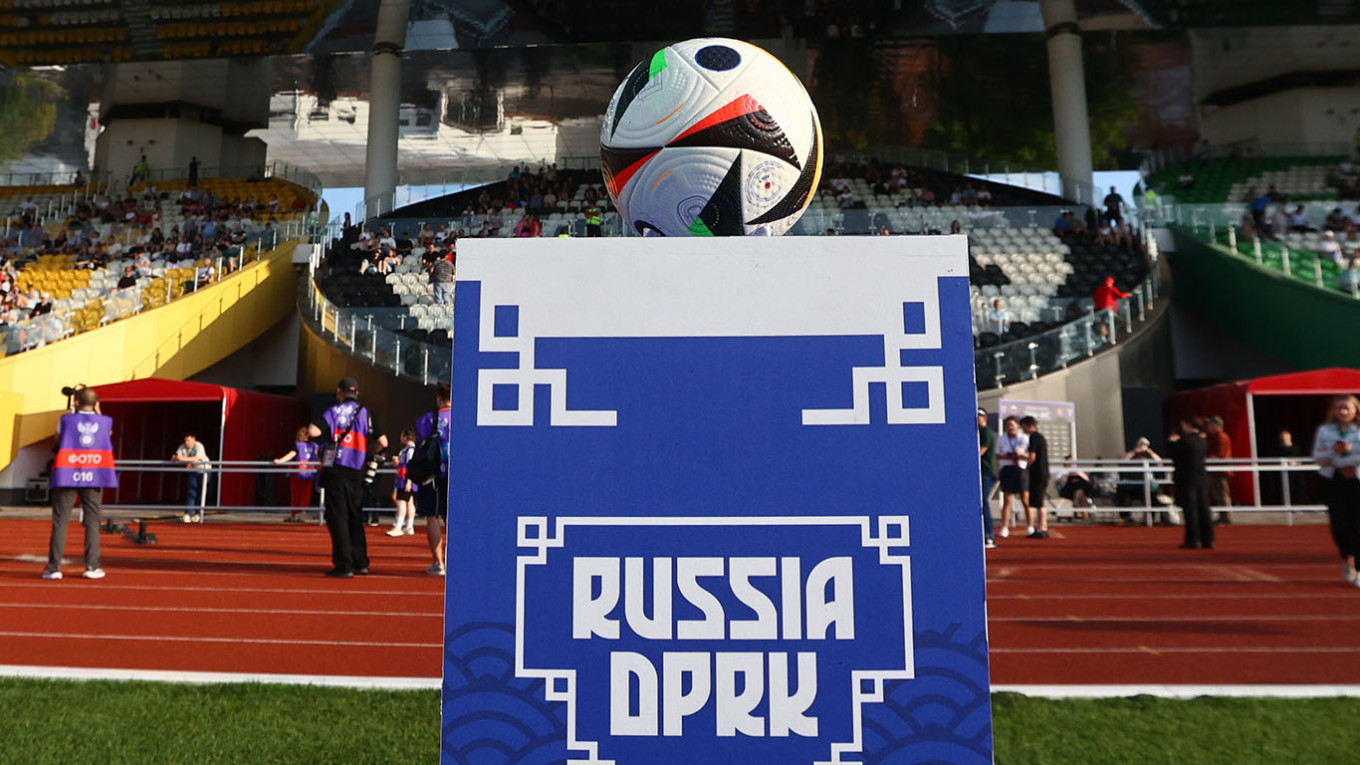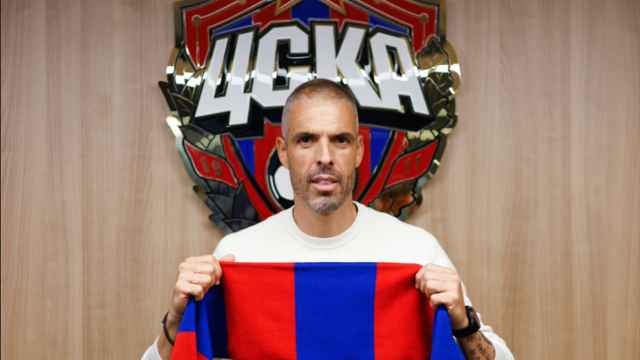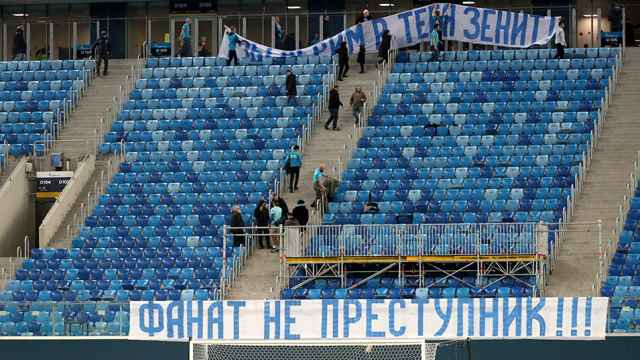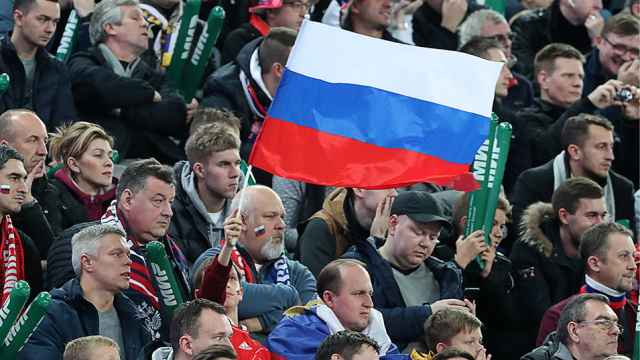They may not have the prestige of the Euros or World Cup, but exhibition matches like these can never be seen in isolation from global conflicts and diplomatic tensions.
Twenty-seven days after President Vladimir Putin left North Korea where he met with Supreme Leader Kim Jong Un, Russia’s women’s team hosted North Korea for the second match in four days on Monday evening in western Moscow.
Russia lost the first friendly match 3-0 and drew the second match 0-0 in what could be regarded as the world’s pariah state derby.
But the two sides are pariahs of different kinds.
One has become accustomed to decades of near-total isolation from the world, yet kept its spot in international sports events.
The other has enjoyed years of maintaining trade ties with some of the world’s largest economies, but has now seen itself banned from taking part in the most important football events.
At next month’s Paris Olympics, all of the 16 Russian athletes invited to the Games will be competing under neutral colors. North Korean athletes will compete under their own flag in events ranging from boxing to table tennis. Its women’s football team narrowly missed out on qualification after losing to Japan.
Astonishingly, North Korea’s women’s team is the 10th-best in the world. Its position on FIFA’s rankings, which is calculated via a performance-based points system, means it is higher than traditional football powerhouses like the Netherlands, Italy and Argentina. They have excelled in continental tournaments, winning three Asian Cups, three Asian Games and three East Asian Championships.
Russia’s women’s team is 27th, but they have been prevented from accumulating points since they were suspended from FIFA in 2022.
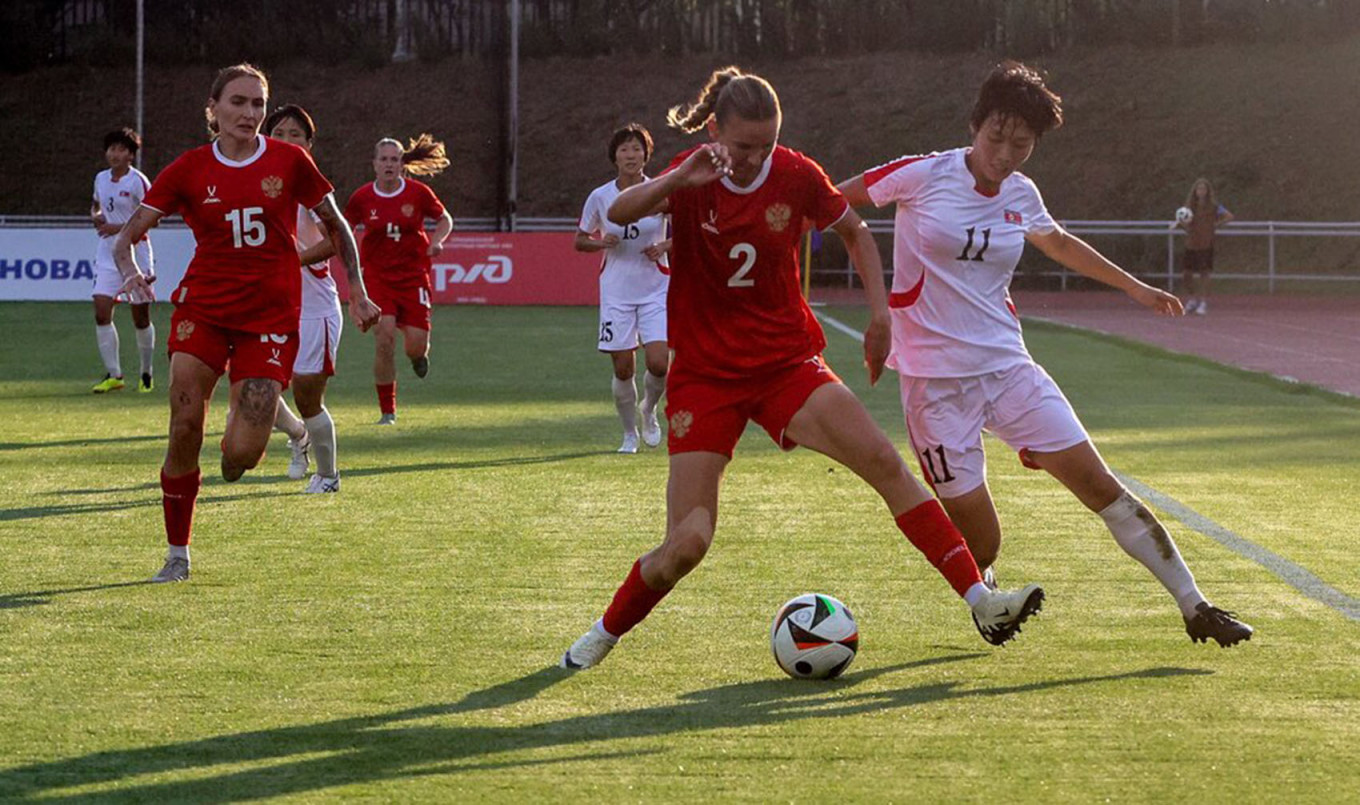
Since the beginning of its full-scale invasion of Ukraine, Russia has clashed with football governing bodies UEFA and FIFA as both suspended Russia’s senior teams from competing in their tournaments. The women’s team was booted out of the women’s European Championships in 2022 held in England, while the men’s team was not allowed to take part in any qualification games for the men’s European Championships, which ended on Sunday night with a Spanish victory.
A game such as this — a friendly against North Korea — represents just how few opportunities Russia’s footballers have to play on the world stage. The women’s team has only played a handful of matches against opponents such as Iran, Botswana and China since 2022, with the men’s team having to endure a 25-month hiatus from playing international football.
There are signs that restrictions may be loosening. Both Russia’s men’s and women’s under-17 teams were granted permission to participate in competitions once again. The men’s team was set to participate in a new tournament made up of Central Asian nations including Afghanistan, Kyrgyzstan and Turkmenistan last year before withdrawing to protect its potential re-entry into UEFA.
Those ambitions were tested when officials in the Russian Football Union (FSU) voted against leaving UEFA to join the Asian Football Confederation last December. After the decision was made, the RFS’s vice president, Akhmed Aydamirov, said: "We will fight for Europe. Russia is Europe. We will win."
Aydamirov’s language reflects that of the Kremlin’s when speaking about its war in Ukraine. Just three days ago, when the Russian women’s team was beaten 3-0 by North Korea, a match report published by Russia’s football federation hailed its opponents’ “precise” and “unstoppable” shooting and counter-attacking. One wonders whether North Koreans would be using the same terms to describe Russia’s military operations.
Such similarities in the language of football and conflict are not unique to Russia and North Korea. And, admittedly, international football in many ways transcends the politics of war and geopolitical rivalries. North Korea’s goalkeeper Kim Zong Sung said England’s Mary Earps was the player she admired the most in world football.
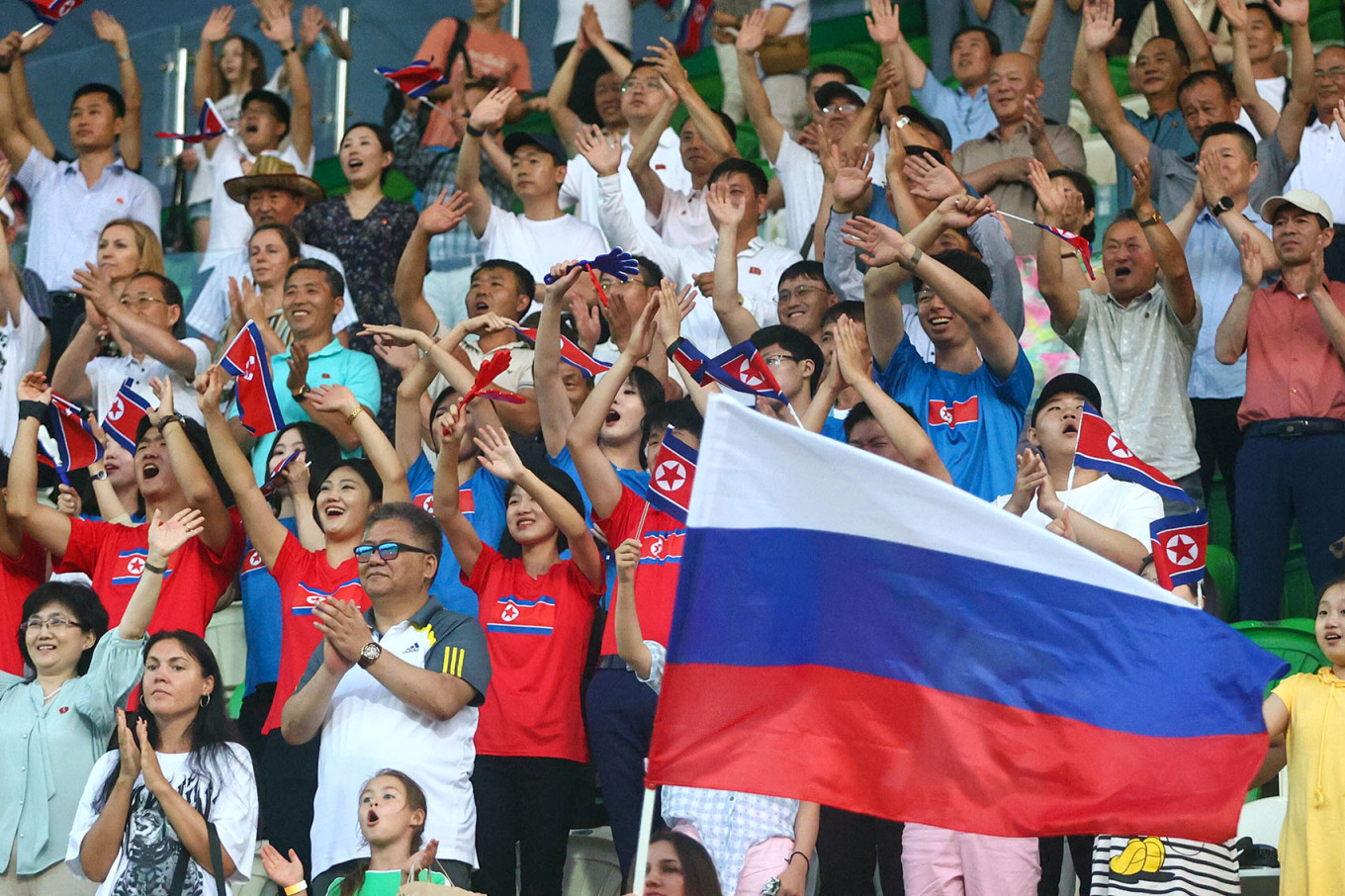
As it was for the Soviet Union, football has historically been a means for North Korea to engage with countries it would never be able to otherwise. In the 1966 World Cup hosted in England, its men’s team reached the quarter-finals before losing 5-3 to Portugal, while, in 2010, North Korea memorably scored a goal against five-time winners Brazil.
Despite a historically poor human rights record and concerns over its development of nuclear arms, North Korea never faced any existential threats to its participation in major sporting events. FIFA president Gianni Infantino even suggested in 2022 North Korea could host a World Cup.
Russia may want to borrow some tips on how to establish a rapprochement with international sports governing bodies from their allies — or competitors, depending on how you view the nature of this football friendly. But it knows all too well that hosting a World Cup does not safeguard its power in the sporting world. Today’s world is a distant reality from 2018 when it hosted the World Cup, welcomed millions of fans from around the world and received praise from Infantino as producing the “best-ever” tournament.
Since Putin ordered the full-scale invasion of Ukraine in 2022, Russia lost the rights to host the Champions League final in St. Petersburg and the 2023 Super Cup in Kazan, while domestic clubs have been kept well away from UEFA competitions. Running a domestic league and organizing friendly matches against the likes of North Korea may keep fans happy in the near term but cannot be sustainable for the country in years to come.
Its negotiating position is by no means strong. European nations ultimately hold sway over decisions at the top of UEFA and FIFA. It was ultimately Scotland, Ireland, Poland and other countries’ refusal to play against Russia which got them kicked out of football competitions, not the organizers themselves. While playing in so-called neutral colors may be an option in tennis, it certainly is not in a team sport like football.
Russians asking when its players can ever fully return to playing in competitive football matches are likely to be given a simple response — it entirely depends on the future of the war. The Russian Football Union clearly believes otherwise. For the time being, friendlies against fellow outcasts like North Korea will have to do.
A Message from The Moscow Times:
Dear readers,
We are facing unprecedented challenges. Russia's Prosecutor General's Office has designated The Moscow Times as an "undesirable" organization, criminalizing our work and putting our staff at risk of prosecution. This follows our earlier unjust labeling as a "foreign agent."
These actions are direct attempts to silence independent journalism in Russia. The authorities claim our work "discredits the decisions of the Russian leadership." We see things differently: we strive to provide accurate, unbiased reporting on Russia.
We, the journalists of The Moscow Times, refuse to be silenced. But to continue our work, we need your help.
Your support, no matter how small, makes a world of difference. If you can, please support us monthly starting from just $2. It's quick to set up, and every contribution makes a significant impact.
By supporting The Moscow Times, you're defending open, independent journalism in the face of repression. Thank you for standing with us.
Remind me later.



